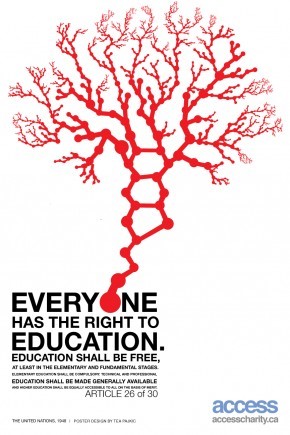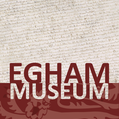Evolution of Rights art project
 Egham Museum and the Runnymede Art Society are planning an exciting exhibition for the summer of 2015 showcasing the evolution of rights from Magna Carta to modern day. A series of artworks will be produced that illustrate key clauses from Magna Carta, the Petition of Right, the Bill of Rights, the Universal Declaration of Human Rights, the European Convention on Human Rights and the Human Rights Act. Inspired by the posters created by Human Rights organisations to illustrate key rights the project will chart the evolution of rights from those debated at Runnymede in 1215 to those being debated in our courts and championed by organisations like Amnesty International today.
Egham Museum and the Runnymede Art Society are planning an exciting exhibition for the summer of 2015 showcasing the evolution of rights from Magna Carta to modern day. A series of artworks will be produced that illustrate key clauses from Magna Carta, the Petition of Right, the Bill of Rights, the Universal Declaration of Human Rights, the European Convention on Human Rights and the Human Rights Act. Inspired by the posters created by Human Rights organisations to illustrate key rights the project will chart the evolution of rights from those debated at Runnymede in 1215 to those being debated in our courts and championed by organisations like Amnesty International today.
Curator of Egham Museum, Dr Matthew Smith, writes:
“There is a tendency with historic anniversaries such as these to only look backward, to, in this instance perhaps, congratulate ourselves on 800 years of the rule of law and the other principles with which Magna Carta is associated. To do so runs the risk of not only missing the point that Magna Carta was one early step on a long process that took centuries to culminate in the rights we enjoy today but also that these very rights are still hotly contested in many parts of the world. The 800th anniversary is therefore an important moment to reflect not only on where we have come from but where we are going.”
Clauses that our artists may choose to illustrate include:
From Magna Carta (1215):
- (28) No constable or other royal official shall take corn or other movable goods from any man without immediate payment, unless the seller voluntarily offers postponement of this.
- (33) All fish-weirs shall be removed from the Thames, the Medway, and throughout the whole of England, except on the sea coast.
- (39) No free man shall be seized or imprisoned, or stripped of his rights or possessions, or outlawed or exiled, or deprived of his standing in any other way, nor will we proceed with force against him, or send others to do so, except by the lawful judgement of his equals or by the law of the land.
- (40) To no one will we sell, to no one deny or delay right or justice.
- (51) As soon as peace is restored, we will remove from the kingdom all the foreign knights, bowmen, their attendants, and the mercenaries that have come to it, to its harm, with horses and arms.
From the Bill of Rights (1689):
- No taxation by Royal Prerogative (parliament must give its consent).
- Freedom of petition the monarch without fear of retribution.
- No cruel of unusual punishments may be imposed.
- No standing army in peacetime without the consent of Parliament.
- No royal interference with the law.
From the Universal Declaration of Human Rights (1948):
- No one shall be held in slavery or servitude; slavery and the slave trade shall be prohibited in all their forms.
- Everyone charged with a penal offence has the right to be presumed innocent until proved guilty according to law in a public trial at which he has had all the guarantees necessary for his defence.
- Everyone has the right to freedom of movement and residence within the borders of each state.
- Everyone has the right to a standard of living adequate for the health and well-being of himself and of his family, including food, clothing, housing and medical care and necessary social services, and the right to security in the event of unemployment, sickness, disability, widowhood, old age or other lack of livelihood in circumstances beyond his control.
- Everyone, without any discrimination, has the right to equal pay for equal work.
From the Human Rights Act (1998):
- Freedom of Expression
- Freedom of Thought, Belief and Religion
- Freedom of Assembly and Association
- Right to Education
- Right to Participate in Free Elections
In addition, a number of artists are working on images to illustrate the broad sweep and evolution of rights from 1215 to 2015.
The artworks will be exhibited in Egham in the summer of 2015 and will be promoted to schools as part of the Magna Carta educational resources in development.
If you would like to get involved with this project or would like to learn more about the linked educational resources please email curator@eghammuseum.org for more information.
